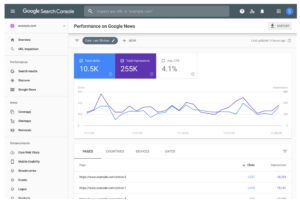The Shifting Digital Landscape
As we navigate through 2025, the digital marketplace continues to evolve at a breakneck pace. For business owners, particularly those with physical locations or serving specific geographic areas, one thing has become abundantly clear: local search engine optimization (SEO) is no longer optional—it’s essential for survival and growth. This comprehensive guide explores why local SEO has become more crucial than ever before and provides actionable insights for business owners looking to strengthen their local digital presence.
The Mobile-First Revolution
The Power of On-the-Go Searches
The smartphone has fundamentally transformed how consumers find and interact with businesses. In 2025, nearly 90% of consumers use their mobile devices to search for local businesses, with most of these searches leading to store visits or purchases within 24 hours. This “search-to-sale” window has compressed dramatically, creating both opportunities and challenges for business owners.
Location-Based Decision Making
Today’s consumers make location-based decisions almost instantaneously. When someone searches for “coffee shop near me” or “best plumber in [city name],” they’re typically ready to make an immediate decision. If your business isn’t properly optimized for local search, you’re essentially invisible to these potential customers at their critical moment of decision.
The Rise of Micro-Moments
Google has identified these instant decision points as “micro-moments”—brief windows where consumers turn to devices to act on a need to know, go, do, or buy something. For local businesses, capturing these micro-moments through effective local SEO can be the difference between gaining new customers or losing them to competitors.
Search Engine Evolution and Local Priority
The Sophistication of Local Search Algorithms
Search engines have become increasingly sophisticated at delivering location-based results. Their algorithms now consider factors like proximity, relevance, prominence, and even the searcher’s previous behavior to deliver highly personalized local results.
The Explosion of “Near Me” Searches
“Near me” searches have grown exponentially year over year, with search engines prioritizing showing users relevant local businesses that can meet their immediate needs. The COVID-19 pandemic accelerated this trend, and it has continued to grow even after the pandemic’s most acute phases.
Local Pack Dominance
The “Local Pack”—those prominent business listings with maps that appear at the top of search results—captures a significant portion of clicks. Appearing in this coveted space requires deliberate local SEO efforts, including proper Google Business Profile optimization, consistent NAP (Name, Address, Phone) information across the web, and positive customer reviews.
The Voice Search Revolution
Conversational Queries Transform Search Behavior
The proliferation of smart speakers and voice assistants has dramatically changed how people search. More consumers are using Alexa, Siri, and Google Assistant to find local services with natural language queries like “Where can I get my car fixed today?” or “What restaurants near me are open now?”
Optimizing for Voice Search
Voice searches tend to be longer, more conversational, and often in the form of questions. Businesses that have optimized their online presence for these conversational searches gain a significant advantage. This means incorporating natural language patterns into your website content and focusing on answering the specific questions your customers might ask.
Local Focus of Voice Searches
Voice searches are disproportionately local in nature, with many users seeking immediate, nearby solutions. Research shows that voice searches are three times more likely to be local-based than text searches, making voice search optimization a critical component of local SEO strategy.
Zero-Click Searches and Your Digital Storefront
The Rise of Information Without Clicking
Many users now get the information they need directly on the search results page without clicking through to a website. According to recent studies, nearly 65% of Google searches end without a click to any website, as users find the information they need right in the search results.
Your Google Business Profile as Your Second Storefront
Your Google Business Profile (formerly Google My Business) has essentially become your second storefront, with customers making judgments based on your reviews, photos, hours, and other information displayed there. This profile often serves as the first point of contact between your business and potential customers.
The Importance of Rich Results
Rich results—enhanced search listings that include additional information like reviews, prices, or availability—capture more attention in search results. Implementing proper schema markup on your website can help search engines understand your content better and potentially display these enhanced listings for your business.
Leveling the Playing Field for Small Businesses
Competing with Larger Chains
Local SEO helps level the playing field between small businesses and larger competitors. With proper local optimization, even a small neighborhood shop can appear above national chains in local search results if they’re more relevant to the searcher’s query and location.
The Trust Factor of Local Businesses
Consumers often prefer to support local businesses when given the option. Local SEO helps highlight the unique aspects of your business that set it apart from larger, less personal alternatives. Customer reviews, community involvement, and local content can all strengthen this competitive advantage.
Hyper-Local Targeting Opportunities
The increasing sophistication of local SEO allows for hyper-local targeting—reaching customers in specific neighborhoods or even within certain radius ranges. This precision targeting helps smaller businesses focus their resources on the most relevant potential customers.
Evolving Consumer Expectations
The Demand for Instant, Accurate Information
People now expect to find detailed, accurate information about businesses instantly. If your hours, location, services, or prices aren’t correctly listed online, customers will likely choose a competitor whose information is clear and accessible.
The Review Economy
Online reviews have become a critical factor in consumer decision-making. Recent studies show that 90% of consumers read online reviews before visiting a business, and 84% trust these reviews as much as personal recommendations. A strong review management strategy is now an essential component of local SEO.
The Expectation of Omnichannel Presence
Today’s consumers expect seamless experiences across physical and digital channels. They might research online, call to ask questions, check social media, and then visit in person. A cohesive local SEO strategy ensures consistency across all these touchpoints.
Practical Implementation Strategies
Foundational Local SEO Elements
The good news is that implementing basic local SEO strategies doesn’t require a massive budget or technical expertise. These foundational elements include:
- Claiming and fully optimizing your Google Business Profile
- Ensuring NAP consistency across all online platforms
- Building a mobile-friendly, fast-loading website
- Creating location-specific landing pages (for multi-location businesses)
- Collecting and responding to genuine customer reviews
Local Content Creation
Creating content with local relevance helps establish your business as a community authority. This might include:
- Blog posts about local events or news related to your industry
- Guides to local resources relevant to your customers
- Profiles of local staff members or community partners
- Location-specific FAQs addressing unique local concerns
Local Link Building
Building relationships with other local businesses, sponsoring community events, and participating in local business directories can help you earn valuable backlinks that boost your local search rankings.
The Future of Local SEO in 2025 and Beyond
AI and Predictive Search
Artificial intelligence is increasingly influencing search results, with search engines attempting to predict user needs before they even complete their queries. For local businesses, this means understanding customer journey patterns and optimizing for predictive search behaviors.
Augmented Reality Integration
The growing adoption of augmented reality (AR) technologies is creating new opportunities for local businesses. AR features in local search allow consumers to virtually experience products or services before making in-person visits.
Local Shopping and Service Integrations
Search engines and social platforms continue to integrate direct shopping and service booking features into local search results, allowing consumers to make purchases or appointments without leaving the search interface. Businesses that adopt these integrations gain competitive advantages.
Taking Action on Local SEO
As we move further into 2025, local SEO will continue to evolve with technological advancements. The businesses that adapt their strategies to match these changes will enjoy a steady stream of local customers, while those that ignore local SEO risk becoming invisible in their own neighborhoods.
The good news is that local SEO is accessible to businesses of all sizes. By starting with the fundamentals and gradually implementing more advanced strategies, any business can improve its local search visibility and connect with more customers in their community.
The question for business owners is no longer whether to invest in local SEO, but how quickly and effectively they can implement a comprehensive local search strategy to stay ahead of the competition and meet the evolving expectations of today’s consumers.






